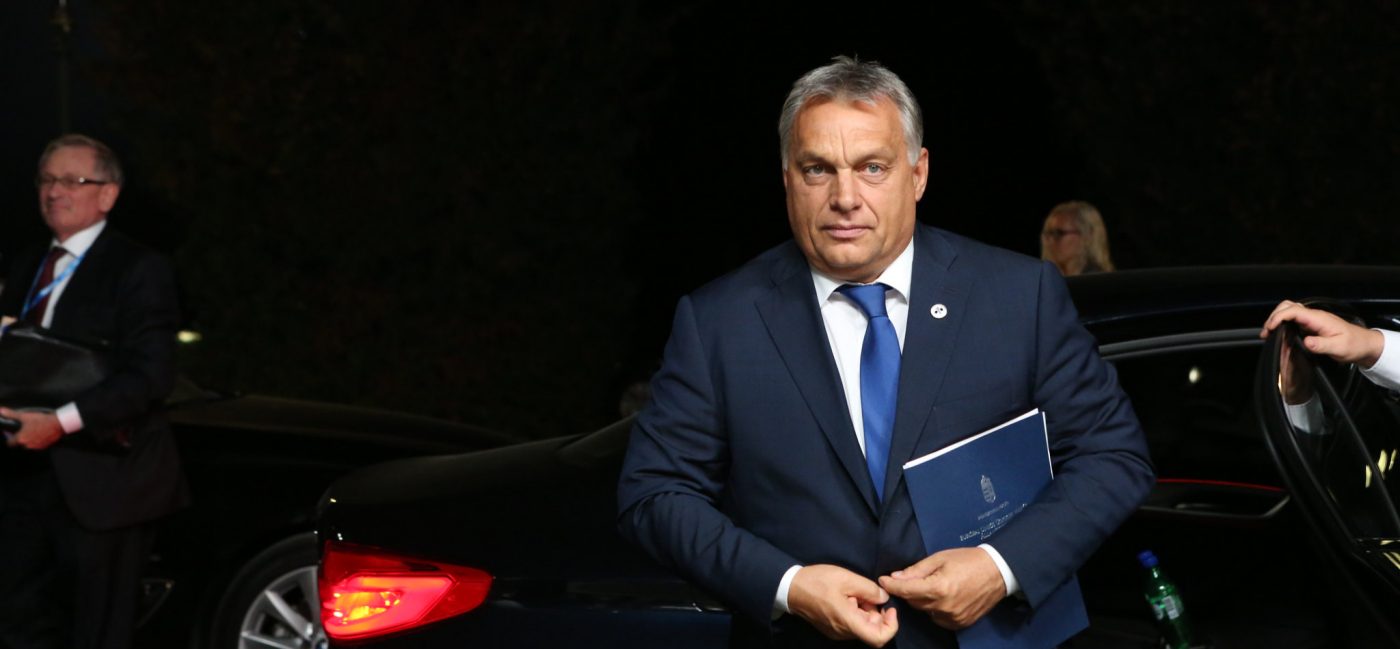Hungary is in quarantine. Not in the medical sense, but politically. The Parliament’s vote on March 30 to approve emergency rule during the coronavirus pandemic has sparked criticism of Viktor Orbán’s government at home and abroad.
True, the move (opinion polls suggest) is popular. Hungary has recorded almost 450 cases of COVID-19, and 15 deaths, prompting public alarm. Other European governments have also passed special legal measures to deal with the health emergency. But their common characteristic is clear deadlines by which they end or are reviewed by lawmakers. Hungary’s new arrangements are different in both reach and potential duration.
Spreading distorted or false information, for example, is now punishable by to up to five years in prison. The definition of this crime is up to the public prosecutor. That may perhaps stop scaremongering (though the authorities produced no evidence that this problem required such drastic new measures). But they do nothing to promote another important factor in preserving social stability: public trust.
Checks and balances have eroded in the 10 years since Orbán’s Fidesz party regained power in 2010. In theory, Parliament can withdraw the exceptional powers it has granted. But the ruling Fidesz party has a two-thirds “constitutional” majority, making that unlikely. The constitutional court should provide another check on abuses—but in Hungary’s winner-takes-all political system, that body is now packed with Fidesz loyalists. The only real constraint is self-restraint: the government insists that it will use the powers responsibly. But confidence in that claim is undermined by an intensifying hate campaign against independent media and other critical voices. An early harbinger of trouble came with the acquisition announced on March 31 by Miklós Vaszily, an Orban-friendly media tycoon, of a controlling stake in Indamedia Group, a holding company that controls advertising revenue for Index, the largest remaining independent news portal.
Abroad, concerns have been raised by the European justice commissioner Didier Reynders, by Marija Pejcinovic Buric, secretary-general of the Council of Europe, and by Ingibjörg Sólrún Gísladóttir, director of the OSCE Office for Democratic Institutions and Human Rights. Their fears are not just about freedom in Hungary. If Orbán successfully exploits the crisis to entrench his rule, strong-headed leaders in other countries may be tempted to follow his example.
At home, the political landscape is highly polarized. One segment believes everything that Fidesz says, the other disbelieves it. Many critics of the government believe that rule by decree will be the opportunity to intimidate the opposition and independent media, abolish elections, and ultimately to replace democracy with dictatorship. A more nuanced interpretation is that the crisis will be a springboard for Fidesz’s electoral success, with elections to be called after the seemingly successful management of the pandemic and before the resulting economic crisis bites. At that point, rule by decree will end and Hungary will be out of quarantine. The effects on its international reputation and the long-term health of democracy—in Hungary and elsewhere—will be another question.
Correction: A previous version of this article misspelled the first name of Hungarian Prime Minister Viktor Orbán.
Common Crisis is a CEPA analytical series on the implications of COVID-19 for the transatlantic relationship. All opinions are those of the author and do not necessarily represent the position or views of the institutions they represent or the Center for European Policy Analysis.
Europe’s Edge is CEPA’s online journal covering critical topics on the foreign policy docket across Europe and North America. All opinions are those of the author and do not necessarily represent the position or views of the institutions they represent or the Center for European Policy Analysis.





